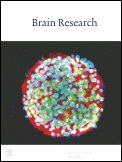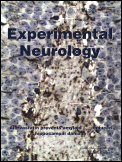Déjà vu is a French loanword for the phenomenon of feeling as though one has lived through the present situation before. It is an illusion of memory whereby — despite a strong sense of recollection — the time, place, and context of the "previous" experience are uncertain or impossible. Approximately two-thirds of surveyed populations report experiencing déjà vu at least one time in their lives. The phenomenon manifests occasionally as a symptom of pre-seizure auras, and some researchers have associated chronic/frequent "pathological" déjà vu with neurological or psychiatric illness. Experiencing déjà vu has been correlated with higher socioeconomic status, better educational attainment, and lower ages. People who travel often, frequently watch films, or frequently remember their dreams are also more likely to experience déjà vu than others.

Michael A. Persinger was an American-Canadian professor of psychology at Laurentian University, a position he had held from 1971 until his death in 2018. His most well-known hypotheses include the temporal lobes of the human brain as the central correlate for mystical experiences, subtle changes in geomagnetic activity as mediators of parapsychological phenomena, the tectonic strain within the Earth's crust as the source of luminous phenomena attributed to unidentified aerial objects, and the importance of specific quantifications for energy, photon flux density, and small shifts in magnetic field intensities for integrating cellular activity as well as human thought with universal phenomena.
Neuroinformatics is the field that combines informatics and neuroscience. Neuroinformatics is related with neuroscience data and information processing by artificial neural networks. There are three main directions where neuroinformatics has to be applied:

Evolution and Human Behavior is a bimonthly peer-reviewed academic journal covering research in which evolutionary perspectives are brought to bear on the study of human behavior, ranging from evolutionary psychology to evolutionary anthropology and cultural evolution. It is primarily a scientific journal, but articles from scholars in the humanities are also published. Papers reporting on theoretical and empirical work on other species may be included if their relevance to the human animal is apparent. The journal was established in 1980, and beginning with Volume 18 in 1997 has been published by Elsevier on behalf of the Human Behavior and Evolution Society. The editor-in-chief is Debra Lieberman.

Journal of Experimental Medicine is a monthly peer-reviewed medical journal published by Rockefeller University Press that publishes research papers and commentaries on the physiological, pathological, and molecular mechanisms that encompass the host response to disease. The journal prioritizes studies on intact organisms and has made a commitment to publishing studies on human subjects. Topics covered include immunology, inflammation, infectious disease, hematopoiesis, cancer, stem cells and vascular biology. The journal has no single editor-in-chief, but thirteen academic editors.

Bilingualism: Language and Cognition is a quarterly peer-reviewed academic journal of linguistics focusing on the study of multilingualism, including bilingual language competence, perception and production, bilingual language acquisition in children and adults, neurolinguistics of bilingualism, and non-linguistic cognitive processes in bilinguals. The journal is published by Cambridge University Press and was co-established by François Grosjean in 1998.
Genes, Brain and Behavior is a peer-reviewed online-only scientific journal covering research in the fields of behavioral, neural, and psychiatric genetics. It is published by Wiley-Blackwell on behalf of the International Behavioural and Neural Genetics Society. The journal was established in 2002 as a quarterly and is currently published monthly. G2B is a hybrid open access journal, but two years after publication all content is available for free online.

The Journal of Cerebral Blood Flow & Metabolism is a monthly peer-reviewed medical journal the official journal of the International Society for Cerebral Blood Flow & Metabolism and publishes peer-reviewed research and review papers. covering research on experimental, theoretical, and clinical aspects of brain circulation, metabolism and imaging. The editor-in-chief is Jun Chen. According to the Journal Citation Reports, the journal has a 2020 impact factor of 6.200.
Alcoholism: Clinical and Experimental Research is a scientific journal covering research concerning alcohol abuse and its treatment. It is published by Wiley-Blackwell on behalf of the Research Society on Alcoholism and the International Society for Biomedical Research on Alcoholism.

Behavioural Brain Research is a peer-reviewed scientific journal published by Elsevier. The journal publishes articles in the field of behavioural neuroscience. Volume 1 appeared in 1980 and issues appeared 6 times per year; as submissions increased it switched to a higher frequency and currently 20 issues per year are published.

Brain Research is a peer-reviewed scientific journal focusing on several aspects of neuroscience. It publishes research reports and "minireviews". The editor-in-chief is Matthew J. LaVoie.

Developmental Neurorehabilitiation is a peer-reviewed medical journal which covers research into recovery and rehabilitation in children with brain injury and neurological disorders. The editors of Developmental Neurorehabilitation are Russell LangTexas State University and Wendy MachalicekUniversity of Oregon.

The UCL Queen Square Institute of Neurology is an institute within the Faculty of Brain Sciences of University College London (UCL) and is located in London, United Kingdom. Together with the National Hospital for Neurology and Neurosurgery, an adjacent facility with which it cooperates closely, the institute forms a major centre for teaching, training and research in neurology and allied clinical and basic neurosciences.

Experimental Neurology is a monthly peer-reviewed medical journal that focuses on research in neuroscience concerning mechanisms underlying neurological disorders. The journal focuses on neural development, neuroregeneration, neuroplasticity, and transplantation,. It was established in 1959 and is published by Elsevier. According to the Journal Citation Reports, the journal has a 2020 impact factor of 5.33. In 1997, Experimental Neurology absorbed the quarterly journal Neurodegeneration, which had been established in 1992.
Experimental and Clinical Psychopharmacology is a peer-reviewed scientific journal published by the American Psychological Association. It was established in 1993 and covers research in clinical psychology. The current editor-in-chief is William W. Stoops.

Canadian Journal of Experimental Psychology is a quarterly peer-reviewed academic journal published by the American Psychological Association on behalf of the Canadian Psychological Association in collaboration with the Canadian Society for Brain, Behaviour, and Cognitive Science. It was established in 1947 and covers experimental psychology. Articles are published in English or French. The editor-in-chief is Debra Titone.
The White House BRAIN Initiative is a collaborative, public-private research initiative announced by the Obama administration on April 2, 2013, with the goal of supporting the development and application of innovative technologies that can create a dynamic understanding of brain function.

Nanoscale is a peer-reviewed scientific journal covering experimental and theoretical research in all areas of nanotechnology and nanoscience. It is published by the Royal Society of Chemistry. According to the Journal Citation Reports, the journal has a 2021 impact factor of 8.307.

Brain Structure and Function is a bimonthly peer-reviewed scientific journal covering research on brain structure-function relationships. It was established in 1891 as Anatomische Hefte, renamed first Zeitschrift für Anatomie und Entwicklungsgeschichte in 1921 and then Anatomy and Embryology in 1974, before obtaining its current name in 2007. It is published by Springer Science+Business Media and the editors-in-chief are Michel Thiebaut de Schotten and Susan R. Sesack.












